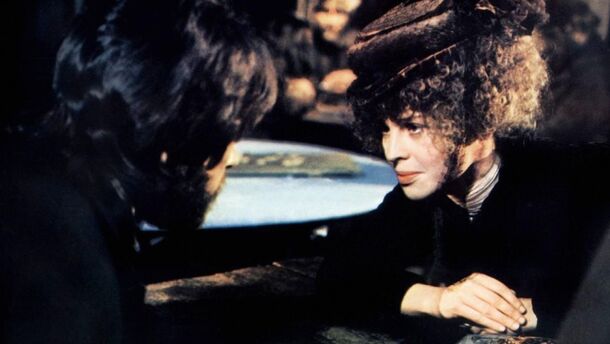Tarantino's List of 10 Must-Watch Westerns Includes Some Hidden Gems

Tarantino was completely ecstatic about these Westerns.
Summary
- Quentin Tarantino is one of the most important cinema buffs in all of Hollywood.
- And of course, one of the most important genres that has influenced his work is the Western.
- The director shared a list of the 10 best western movies, which includes both recognized classics and hidden gems.
Quentin Tarantino's oeuvre is characterized by a digested concentration of pop culture, with all the media phenomena that have become widely recognized icons. He blends familiar tropes with his unique flair for offbeat dialogue and eye-popping action, while paying tribute to the classic writers and actors of the past.
Today we are going to talk specifically about Westerns, as this is one of Tarantino's favorite genres, and he has compiled a list of 10 masterpieces. Some of them you certainly know, as they are universally recognized classics of the genre, but some, on the contrary, are unsung masterpieces of the 20th century. The director's list also includes a 21st century film that he liked, despite the general aversion to this representative of the Western genre.
These Are the Westerns That Tarantino Recommends Watching
10. The Lone Ranger (2013)
9. Ulzana's Raid (1972)
8. Navajo Joe (1966)
7. Winchester 73 (1950)
6. The Hellbenders (1967)
5. Django (1966)
4. McCabe & Mrs. Miller (1971)
3. The Wild Bunch (1969)
2. Rio Bravo (1959)
1. The Good, the Bad and the Ugly (1966)
A Little Something About Tarantino's Love of Westerns
For all the genre diversity in Tarantino's oeuvre, Westerns hold a special place. His Django Unchained and The Hateful Eight (though he also referred to another film, Inglourious Basterds, as a Western) are both homages to classic films, including those of Sergio Leone, and daring (yet respectful) revisionist reinterpretations of the genre.
Westerns articulated Quentin Tarantino's directorial and screenwriting vision: his films, even Pulp Fiction, incorporate narratives and structures that reference classic Western movies about bounty hunters, noble outlaws, and nameless vigilantes who roam the world for an unnamed purpose while delivering bloody justice.
In addition to Sergio Leone, whose The Good, the Bad and the Ugly from the iconic Dollar Trilogy gave Tarantino a well-deserved top spot on his list, the obvious standout is another spaghetti western, 1966's Django, directed by Sergio Corbucci. However, Tarantino literally deconstructed the image of the popular character and delivered an epic abolitionist story as we know it.
Unsung Westerns and One of the Genre's Worst
While pop culture will never forget the contributions of Sergio Leone, Sergio Corbucci, and Howard Hawks, Tarantino has brought to the table great films that are unfortunately under-discussed by Western fans, despite offering not only original scripts, but a revisionist approach that inspired Tarantino himself to deconstruct the genre.
Robert Altman's McCabe & Mrs. Miller, for example, was one such movie on his list. At the time of its release in 1971, the film was received extremely negatively by critics and audiences, who criticized it for its allegedly unfair focus on the brutality and cruelty of American history. However, Altman's subversion of the clichés and conventions of the Western was a direct rebuke to the proponents of the romanticization of the Old West.

However, when it comes directly to storytelling, the filmmaker considers Alan Sharp's revisionist work in Ulzana's Raid to be the best Western script, which is seen as an allusion to the futility and tragedy of the Vietnam War.
But the most unconventional is probably Tarantino's mention of The Lone Ranger (its 2013 iteration), which stands out because it's apparently the only Western the director likes that was produced in the 21st century (at least of the ones he mentioned). This is despite its critical and commercial failure, as well as the scandal surrounding the casting of Johnny Depp as a Native American.
'The first forty-five minutes are excellent ...the next forty-five minutes are a little soporific. It was a bad idea to split the bad guys in two groups; it takes hours to explain and nobody cares. Then comes the train scene—incredible! When I saw it, I kept thinking, "What, that's the film that everybody says is crap? Seriously?"'
Source: Slash Film.
